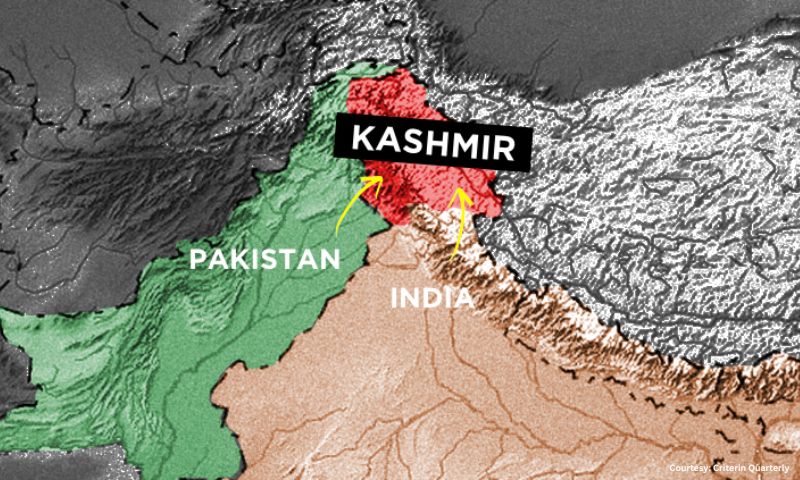SRINAGAR/ISLAMABAD – In a fresh analysis of global tensions, experts have named Kashmir as one of the few regions most prone to sudden escalation, ranking alongside hotspots like the Taiwan Strait, Ukraine border, and parts of the Middle East.
Political analysts point to several reasons for Kashmir’s inclusion:
- Perennial Tensions: Long-running disputes over territorial claims and conflicting administrative control between India and Pakistan continue to fuel cross-border incidents.
- Military Posture: Both sides regularly deploy significant forces and artillery along the Line of Control. This high-alert posture increases the risk that any local clash could spiral into broader conflict.
- Proxy Movements: Reporting suggests that militant activity on both sides, along with frequent arrests and encounters, keeps the flashpoint alive.
- Diplomatic Flashpoint: High-level visits, UN statements, and international media focus often add fuel to the fire, heightening tension without offering clear resolution pathways.
Local residents say the omnipresent threat of disruption—from artillery exchanges to internet shutdowns and travel curbs—has become a recurring feature of daily life. Farmers report that their planting and harvesting cycles are disrupted whenever even minor firing incidents flare up across the border.
Analysts warn that the international community must prioritise measured diplomacy, focused de-escalation through military back-channels, and renewed political dialogue. Without such efforts, Kashmir’s potential to provoke unexpected escalation remains a worrisome reality for both nations and the surrounding region.
This story has been reported by PakTribune. All rights reserved.



